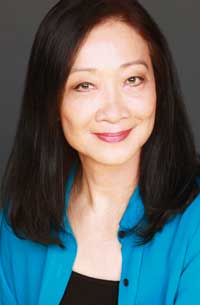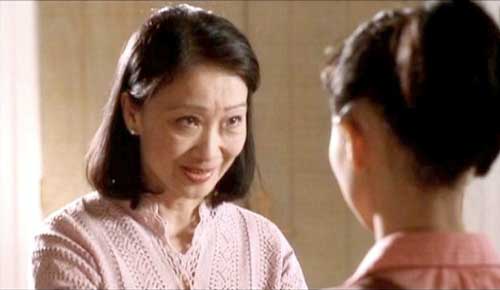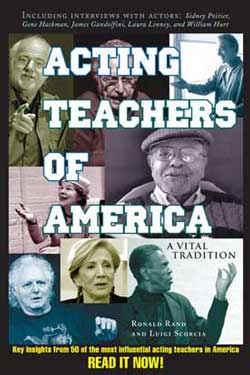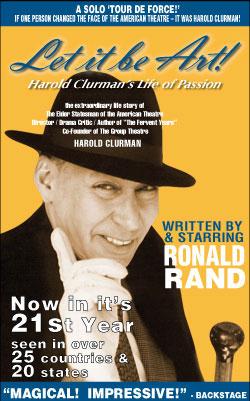Tina Chen

Ms. Chen is currently starring in Albert Chan’s new short film, “Descendants of the Past, Ancestors of the Future.” She recently gave her talk, "Legacy of My Chinese Family" about the three generations of her mother’s family and their contributions to Chinese culture at the Greensboro Arts Alliance Summer Stock Theatre in Vermont, and at Urban Stages in New York City. She had a starring role opposite Kelly Hu and Roger Rees in a Film Festival award-winning independent feature, “Almost Perfect,” written and directed by Bertha Bay-Sa Pan; and the indie short film “The Potential Wives of Norman Mao,” shown at the 2011Cannes Film Festival, written and directed by Derek Nguyen, and narrated by George Takei. Her other films include “The Hawaiians” opposite Charlton Heston, for which she received a Golden Globe Award nomination, “Alice’s Restaurant” opposite Arlo Guthrie, “Three Days of the Condor” opposite Robert Redford, and the award-winning indie film, Face” opposite Bai Ling. Her television work includes guest starring roles on numerous shows opposite Anthony Quinn, Burt Reynolds, Wayne Rogers, and David Carradine, and she was nominated for an Emmy Award for “The Final War of Olly Winter” opposite Ivan Dixon. She has played leading roles in many productions on and off Broadway, including Katharine Nomura in “The Love Suicide at Schofield Barracks) (August Wilson Theatre), Mother Goddamn in “The Shanghai Gesture” (Mirror Repertory Theatre), and “Family Devotions” by David Henry Hwang. She has directed a number of plays, including Lucy Liu’s New York stage debut in “Fairy Bones.” On Broadway, she co-produced the play “Passion” by Peter Nichols starring Frank Langella, and received a Drama Desk Award nomination as part of the producing team for “The Rink” by Terrence McNally starring Chita Rivera and Liza Minnelli. Ms. Chen’s other awards include Urban Stages 25th Anniversary Award for Artistic Brilliance, Women’s Project’s Women of Achievement Award, Girl Scouts Woman of Distinction Award, and The Anna Mae Wong Award. She wrote the music for the holiday song, “This Tree,” with lyrics by Ruth Wolff, which premiered with the Hong Kong Children’s Choir at its Silver Jubilee, and composed short flute pieces for Pan Asian Repertory’s production of “Fairy Bones.” While working as an actor, Tina simultaneously worked as a research technologist in the Serology & Genetics department at the New York Blood Center. An honorary advisor for the Pan Asian Repertory Theatre, Ms. Chen is on the National Council of the Aspen Music Festival & School and volunteers for Lighthouse International as a reader for the sight impaired. TinaChen.net.

Tina Chen with Bail Ling in "Face."
Heroes of History:
Legacy of My Chinese Family
by Tina Chen
Some years ago, the Cosmopolitan Club, a career women’s club in New York City asked me to present a talk. I initially thought the topic would be about my professional artistic life. But a number of things happened that made me want to talk about my ancestors.
First, my husband asked me, after my mother’s passing, whether I wanted to travel back to China to trace my roots. I didn’t follow through at the time but the idea had been planted in my head. Shortly thereafter, a dear friend of mine, Katharine Houghton, surprised me with a cassette tape of a conversation she had made of my mother years ago. They were both living in New York City at the time. On the cassette my mother talked about her past, her family. I was so touched by her words, andI’m so grateful to have it.
Soon after that, the Pan Asian Repertory Theater in New York City asked me to play the Dowager Empress in the production of “Empress of China.” I remembered hearing as a child that my great grandfather had served under the Empress Tzu Hsi and had often visited the court. All of these things taken together made me feel as though my mother’s spirit was somehow manipulating circumstances for me to learn more about my ancestors.
When I gave my talk at the Cosmopolitan Club, I shared about the history of my mother’s family – my great grandfather, Tan Zhong Lin, my grandfather, Tan Yen Kai, and my mother, Tan Yuin.
In China, my family was known as the Tans, and the Chinese always put the last name first. When I traced my family history, my journey started from the latter part of the 19th century near the end of the Ching Dynasty. The first recorded Tan (Tan Wei Se) lived in Jiang Xi Province.
However more recently, I found a book written by my mother’s oldest brother Tan Beue, who traced our ancestry back to the Spring and Autumn period in Chinese history, dating from 770–476 BC, more than 2500 years ago! Even before when Christ and Buddha lived.
My great grandfather, Tan Zhong Lin, had served under three emperors and one empress towards the end of the Ching dynasty as a royal advisor, and he also became Viceroy of seven provinces. During his life, he also cultivated his chefs to create the famous Tan kitchen.
Tan Yen Kai, my grandfather, was one of the founders of the Republic of China. He also later served as the fledgling country’s Premier. One of my aunts and an uncle were accomplished calligraphers, and another aunt of mine married President Chiang Kai-Shek’s Vice President, Chen Cheng.
My mother, Tan Yuin, also known as Una Yuin Tann, had attended England’s Cambridge University, where she received an honors degree and a master’s degree in English Literature, recognized as one of the best students not studying in her language. It was an amazing feat considering she was studying English Literature with English students studying in their own language, as she was from China. After she moved to America, she taught at Georgetown and Johns Hopkins Universities. My mother made, in her own special way, contributions to the history of China.
Now I have chosen to continue sharing my family’s history around the world. It is a heartfelt sharing for me of the three generations of my mother’s family. 2014
Written for “The Soul of the American Actor.”




